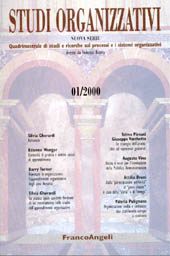Perché Smart Working è benessere, produttività e coesione territoriale
166-185 p.
Questo articolo mira a spiegare come due organizzazioni aziendali, una pubblica e una privata, hanno innovato negli ultimi cinque anni in una trasformazione sia organizzativa che digitale, investendo sulla fiducia, impegnandosi nel work-life balance e introducendo massicciamente lo Smart Working laddove possibile. Entrambe queste organizzazioni sono grandi e tipiche organizzazioni burocratiche nate nel centesimo secolo, parte dello stesso ecosistema regionale, anche se vincolate da contesti normativi e di commitment estremamente diverso: la Regione Emilia-Romagna e Automobili Lamborghini. Questo articolo cercherà di tracciare le similitudini fra i due percorsi, le moti-vazioni teoriche ed empiriche che hanno sospinto simili trasformazioni, nonché i risultati in termini di produttività, benessere aziendale, attrattività e retention di talenti. Infine, da questo esempio, si proporrà uno spunto su cui costruire future politiche di coesione nel contesto europeo. [Testo dell'editore]
This article aims to explain how two organizational entities, one public and one private, have innovated over the last five years in both organizational and digital transformation, investing in trust, committing to work-life balance, and massively introducing Smart Working where possible. Both of these organizations are large and typical bureaucratic organizations born in the twentieth century, part of the same regional ecosystem, although bound by extremely different regulatory and commitment contexts: the Emilia-Romagna Region and Automobili Lambor-ghini. This article will attempt to trace the similarities between the two paths, the theoretical and empirical motivations that have driven similar transformations, as well as the results in terms of productivity, corporate well-being, attractiveness, and talent retention. Finally, from this example, it will propose an insight on which to build future cohesion policies in the European context. [Publisher's text]
Is part of
Studi organizzativi : XXVI, 1, 2024-
Articles from the same issue (available individually)
-
Information
ISSN: 1972-4969
KEYWORDS
- Smart working, Benessere organizzativo, Work-Life Balance, Produttività, Trasformazione digitale, Employer branding
- Smart Working, Organizational Well-being, Work-Life Balance, Productivity, Digital Transformation, Employer Branding


